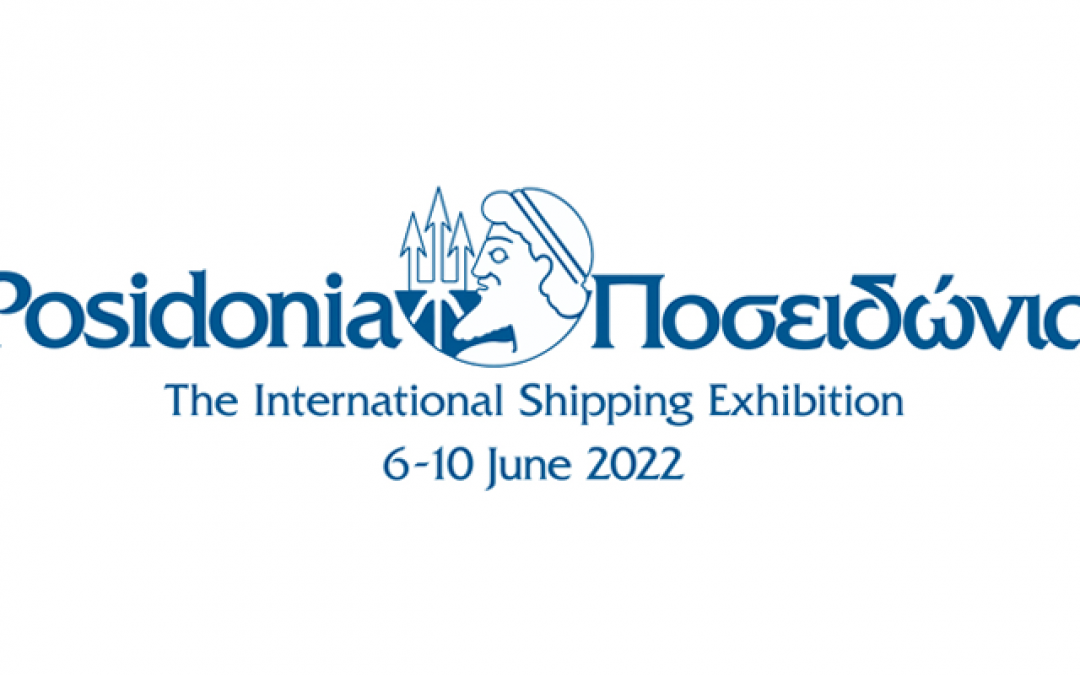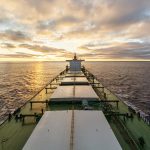The world’s leading classification societies for the marine industry are returning to Posidonia this June, following the pandemic-induced hiatus, during which they have been mapping out the path to the International Maritime Organisation’s 2030 deadline, for an at least 40% reduction of shipping’s average carbon intensity (CO2 per tonne mile), compared to 2008.
The most imminent milestone of the IMO’s decarbonisation roadmap is 1st January 2023, requiring that all vessels calculate their Energy Efficiency Existing Ship Index (EEXI) and establish their annual operational Carbon Intensity Indicator (CII).
Scheduled for June 6-10, the Posidonia exhibition will provide the world’s maritime community with a pertinent and timely platform to meet with the likes of ABS, BV, CCS, Class NK, DNV, KR, LR and RINA, amongst others, to align a collective response to the IMO mandate and navigate the last miles remaining prior to the implementation deadline for the EEXI and CII requirements.
Speed is of the essence, both in terms of how quickly shipowners and the industry at large could respond to the IMO’s short term monitoring requirements, as well as insofar their long-term commitment to lower the limit of knots their fleets can travel.
“We know that the journey to a destination of net zero by 2050 must begin and many shipowners and operators are well on their way. But companies and individuals will move at different speeds. Classification will play a key and vital role on the way to net zero, supporting stakeholders, whatever their speed of change, but we probably need to prepare to be surprised,” said Paillette Palaiologou, Vice President Marine & Offshore Division, SE Europe, Black Sea & Adriatic Zone, Bureau Veritas.
At Posidonia 2022 BV will showcase its full range of classification services and digital platforms, such as VeriSTAR Green, a tool which supports compliance with EEXI and CII. BV has already introduced guidance for ammonia as a marine fuel, methanol and wind propulsion rules and is about to delve deeper into hydrogen.
American Bureau of Shipping (ABS) is another classification leader with many nautical miles under its belt on the course to decarbonisation. From its Athens-based central hub of its international sustainability network, ABS has been working with owners and operators to develop individual decarbonisation strategies across the areas of benchmarking, improvement and monitoring.
Georgios Plevrakis, ABS Vice President, Global Sustainability, said: “Existing vessels can improve operational efficiency, which encompasses speed optimization and digital technologies and these offer short term savings, which then need to be monitored to evidence the improvement on the carbon intensity trajectory.”
ABS has been developing practical applications of key decarbonisation technologies and fuels, including carbon capture onboard, offshore green hydrogen production, ammonia as fuel, advanced LNG vessel and containment designs, among many others.
According to DNV, decarbonisation is a challenge that no one player, or even industry, can tackle on its own. “Today we have moved on from declarations of intent to action. We need a collaborative effort, with joined-up infrastructure, energy, technology, understanding, regulations, and financial support, all striving towards the same goal. There is real momentum building, and we all need to keep focused on taking the next step forward to get to this goal,” said Knut Ørbeck-Nilssen, CEO DNV Maritime.
Shipbuilding is a key stakeholder with a significant role to play in the decarbonisation discourse as it needs to support shipowners’ efforts to comply with the stringent requirements of the regulator.
“The more challenging riddle is found in new construction choices, with carbon reduction regulations suggesting a ship built today must be 40% more efficient in 20 years’ time. We are active in that space, helping owners understand how the choice of one technology or fuel over another affect their trajectory,” said Plevrakis of ABS.
As a representative of the collective Posidonia 2022 participation of the Dutch shipbuilding industry, Roel de Graaf, Managing Director, Netherlands Maritime Technology, believes that energy transition is a topic of profound importance for the global maritime industry.
“We are already seeing a lot happening in the field of electrification and alternative fuels. For different ship types, there are different solutions. And within the framework of our maritime masterplan we are working towards a smart and emissions-free maritime sector.
“The whole Dutch maritime sector has developed a maritime masterplan together. Through maritime R&D projects, technologies are being developed in the Netherlands to make shipping more sustainable. The goal of the masterplan is to come up with at least 30 emission-free ships by 2030,” said de Graaf.
But it’s not just new ships that need to comply with the IMO’s regulations. Existing fleets need to embark on extensive retrofitting projects to bring them in line with requirements.
“The decarbonisation drive will lead to increasing demand for technologies and services to make the global fleet meet the environmental targets. Especially for the current trading vessels we expect a lot of retrofit demand going forward,” said Stavros Leousis, Managing Director of the Greek branch of UK’s ship repairs, drydocking and retrofitting company Newport Shipping, which is preparing for its second Posidonia participation.
Theodore Vokos, Managing Director, Posidonia Exhibitions S.A., said: “Decarbonisation and its drivers of new propulsion technologies, alternative fuels and required infrastructures will be extensively debated at the Posidonia 2022 Conference programme, as indeed will all other issues of interest and concern to the global shipping industry.
“Once again, in June this year, Posidonia will provide a prestigious platform for the international maritime community to convene, communicate with each other, learn from each other, establish new partnerships and discover the latest trends and technologies that will impact the sector in the years to come.”
Posidonia is organised under the auspices of the Ministry of Maritime Affairs & Insular Policy, the Union of Greek Shipowners and the Hellenic Chamber of Shipping and with the support of the Municipality of Piraeus and the Greek Shipping Co-operation Committee.
Source: Hellenic Shipping News





